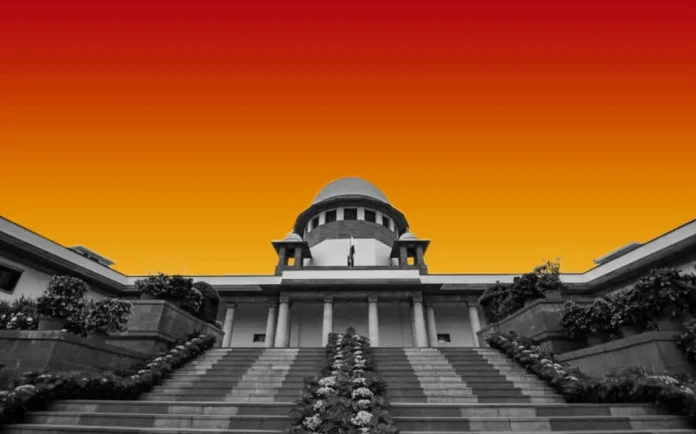The Supreme Court has held that a police official accused of registering a bogus case and fabricating evidence or documents in connection with the same, could not claim immunity under Section 197 of the Code of Criminal Procedure (CrPC), since the act did not form part of the official duty.
Section 197 of CrPC protects public servants from prosecution if they are accused of committing a crime while acting in discharge of their duties. As per the provision, prior sanction must be obtained from the government for prosecuting such officials.
The Bench of Justice JB Pardiwala and Justice Manoj Misra observed on Friday that a police official said to have lodged a false case could not claim that sanction for prosecution under Section 197 CrPC was required since it did not constitute part of the official duty of a public servant to lodge a bogus case and fabricate evidence or documents in connection with the same.
In a legion of decisions, this Court has held that any misuse or abuse of powers by a public servant to do something impermissible in law like threatening to provide a tutored statement or trying to obtain signatures on a blank sheet of paper; causing the illegal detention of an accused; engaging in a criminal conspiracy to create false or fabricated documents; conducting a search with the sole object of harassing and threatening individuals, amongst others, could not fall under the protective umbrella of Section 197 CrPC, noted the Court.
The mere fact that a wrongful act such as registering a false case arose out of official duty did not automatically bring the act within the purview of Section 197 CrPC.
Allowing so would enable the accused to use their status as public servants as a facade for doing an objectionable, illegal and unlawful act and take undue advantage of their position, it added.
The top court of the country made these observations in a case related to the officials of Madhya Pradesh Police, who were accused of registering a false case to create an alibi for a man charged for murder in Uttar Pradesh.
On October 12, 2007, a teacher Suman Prakash Yadav was allegedly killed by Surender Singh Gurjar, Veerbhan Gurjar, Ashok Dixit, Pappu Dixit, Sanjay Dixit and three others.
The MP Police arrested Ashok Dixit on the same day in a case under the Excise Act for carrying 12 bottles of illegal foreign liquor. He was later released on bail the same day.
The UP Police later found that the Excise Act case was fabricated to create a false alibi for Ashok Dixit, a relative of one of the cops in MP.
In 2012, the trial court in Firozabad found 12 accused including Ashok Dixit guilty of murder. Meanwhile, the issue related to prosecution of the MP police officials continued to remain pending.
In 2018, the Allahabad High Court quashed the criminal proceedings against them for lack of sanction under Section 197 CrPC. The murder victim’s brother then moved the Apex Court.
The top court of the country opined that no cogent evidence was presented by three accused police officials to support their bona fide.
If the case of the prosecution that the respondents no. 3, 4 and 5 had also played a dubious role in registering a false case was correct then the requirement of sanction would not be a sin qua non for proceeding further with the criminal proceedings. However, the defence must be given an opportunity to rebut the same by leading appropriate evidence, noted the Bench.
With regard to the fourth police official, the Apex Court said there would be no requirement for sanction since he was not acting in the discharge of his official duty since he was not even posted at Murar Police Station, Gwalior, where the Excise Act case was registered.
In case there was a legitimate doubt as regards to whether sanction for prosecution under Section 197 CrPC was required or not, the progress of the trial must not be hampered or unnecessarily delayed.
The Bench said the Firozabad CJM was correct in taking cognisance of the two charge sheets vide its orders dated November 24, 2008 and August 10, 2009, respectively.
It saud the High Court committed an error in failing to consider this aspect while quashing the proceedings in Case No. 67 of 2008 and 67A of 2009 respectively vide its impugned order.
The Apex Court directed the trial court to conclude the trial within a year, stating that in case the evidence in future suggested that the Excise Act case was indeed registered in the discharge of official duty and was not bogus, the trial may be stayed for want of sanction.


